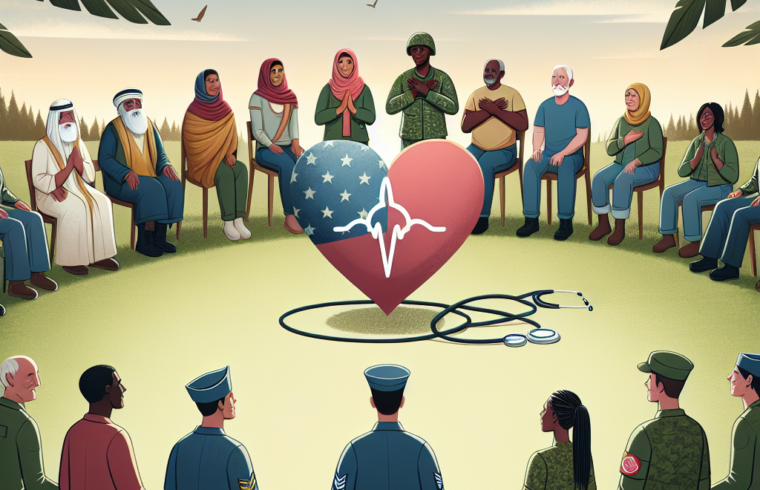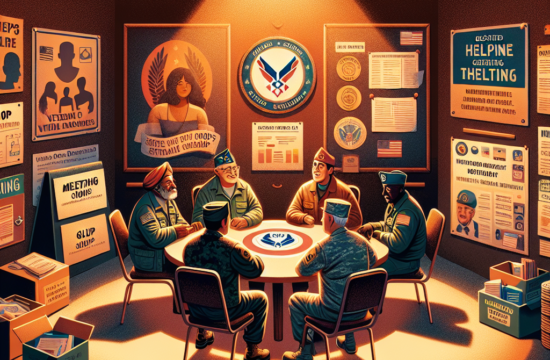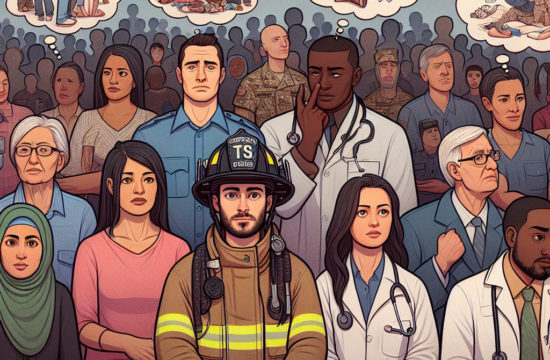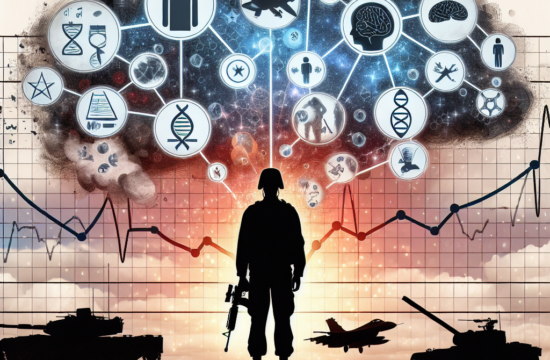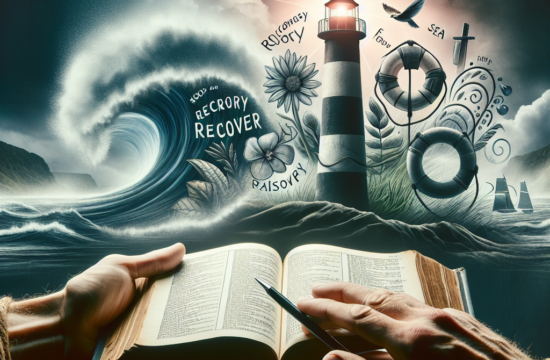Table of Contents
- Impact of Combat Stress
- Benefits of Emotional Healing
- The Role of Community Support
- Methods of Emotional Support
Impact of Combat Stress
Understanding Combat Stress
From my personal experience and years in this field, one thing stands out: the profound impact of combat stress on veterans. Imagine carrying the weight of traumatic experiences day in and day out. It’s not something that simply fades away with time. Combat stress can manifest itself in various forms, such as anxiety, depression, and even PTSD. These aren’t just buzzwords; they represent real challenges veterans face every day.
==> Thank you for reading this post! Click Here If you are looking for support and Victory over PTSD.
Combat stress is essentially the body’s response to the traumatic events experienced during service. Whether it’s life-threatening situations, witnessing injury or death, or the constant high-alert state, these can take a significant toll on one’s mental health. Think of it as a mental imprint that doesn’t easily disappear. Instead, it shadows the veteran long after they return to civilian life.
Without appropriate support and understanding, it can lead to severe, long-term complications. Relationships might suffer, daily functioning can be affected, and overall quality of life may decline. That’s why it’s important to shed light on this topic and actively work towards offering the necessary support.
Recognizing the Signs
If you ask me, recognizing the signs of combat stress is the first step towards healing. Veterans might not easily open up about their struggles, often out of pride or the fear of being misunderstood. However, certain signs can give us clues. They might experience severe mood swings, withdrawal from social activities, flashbacks, or hormonal changes. These signs are a clear cry for help.
Creating an environment where veterans feel safe and understood can make all the difference. It’s like opening a window in a dark room. They need to know it’s okay to not be okay and that seeking help doesn’t make them weak but strong. In my career, I’ve seen how devastating it can be when these signs are ignored. Families break apart, promising careers falter, and worst-case scenarios do unfold.
Recognizing the signs early and addressing them head-on paves the way for a healthier, happier post-service life. It’s all about being vigilant and caring. A simple, “Hey, how are you doing?” can sometimes suffice to get the ball rolling.
Long-term Effects of Ignoring Combat Stress
What’s even more concerning is the long-term effects if combat stress goes unaddressed. The silent suffering can spiral into chronic mental health disorders, substance abuse, and even suicidal tendencies. The longer it’s ignored, the deeper the issues can embed themselves.
Think of it as leaving a wound untreated. What starts small can become significantly more complicated if not addressed promptly. Getting to the root of combat stress requires a supportive and consistent approach.
In the end, it’s about ensuring our heroes have the resources they need. Emotional healing shouldn’t be a luxury but a given. And it starts with acknowledging the problem and dedicating sincere efforts to resolve it.
Benefits of Emotional Healing
Improved Quality of Life
When we talk about emotional healing, we’re looking at profound benefits that genuinely improve a veteran’s quality of life. Imagine waking up every day without the heavy burden of anxiety and fear. It’s like a breath of fresh air.
Emotional healing allows veterans to reconnect with their loved ones. They start seeing joy in the little things in life. They begin to participate in activities that bring them happiness without constantly feeling on edge. For many, it’s like rediscovering the world from a clearer, more peaceful perspective.
When veterans undergo emotional healing, they begin to regain their self-worth. They start to understand that they are more than their experiences. They develop a stronger identity that’s not solely defined by their past struggles.
Better Relationships
Healing emotionally isn’t just an individual process; it positively affects everyone around the veteran. Relationships that were strained start to mend. Communication improves, and trust gets rebuilt.
Think about it: a balanced, emotionally healthy individual brings a lot more to the table in their personal relationships. They can be more present, more understanding, and more loving. For veterans, this means reconnecting with their spouse, children, and other family members. It’s about forming a new, healthier bond going forward.
From what I’ve seen, the ripple effect is tremendous. When veterans heal, their entire family dynamics can shift positively. It’s like watching a plant that’s been wilting suddenly come back to life, vibrant and full of color.
Enhanced Career Prospects
Emotional healing isn’t just about mental well-being; it directly impacts career prospects too. Veterans who have gone through proper emotional healing are better equipped to handle the pressures of a job. They’re more focused, less likely to get overwhelmed, and can think more clearly.
From my personal experience working with veterans, I’ve noticed they tend to excel in their careers once they’ve addressed their emotional struggles. They bring incredible discipline, leadership skills, and work ethic, which makes them invaluable team members.
For veterans aiming to transition into civilian careers, emotional healing can be the bridge to success. It allows them to utilize their skills and strengths more effectively without the constant shadow of past trauma. It’s about giving them a fair shot at a fulfilling, successful second career.
The Role of Community Support
Importance of Community Awareness
When it comes to emotional healing, community support is like the bedrock. It provides a foundation that veterans can lean on during their healing journey. Community awareness about veterans’ struggles is the first step in building this support system.
Communities that understand the challenges veterans face can offer more targeted help. This awareness leads to better resource allocation, more empathy, and a stronger support network. From my perspective, this community involvement makes all the difference.
Communities can work together to create safe spaces where veterans feel understood and supported. This can be through local events, support groups, or simply fostering a culture of acceptance and understanding. It’s about making a collective effort to ensure veterans feel valued and supported.
Engaging Local Organizations
Local organizations play a crucial role in veterans’ emotional healing. These groups often provide resources that are directly beneficial, such as counseling, job training, and social activities. Engaging with these organizations can provide a much-needed boost to the veteran’s healing process.
From what I’ve seen, veterans who engage with these organizations often find a sense of belonging. They meet others who have gone through similar experiences, and this shared understanding can be incredibly therapeutic.
Organizations like veteran support groups, non-profits, and even local businesses can offer practical help and emotional support. It’s like having a lifeline, helping veterans navigate the complexities of post-service life.
Family and Friends’ Role in Healing
Never underestimate the influence of close-knit relationships in emotional healing. Family and friends are often the first line of support, and their role is absolutely pivotal. They offer a sense of normalcy and constant support that’s hard to find elsewhere.
Being there for a veteran doesn’t require grand gestures. Sometimes, it’s the little things that matter most. Listening, offering a shoulder to cry on, or just spending time together can significantly aid in the healing process.
It’s like creating a safety net. With the love and understanding of family and friends, veterans feel more secure as they navigate through their healing journey. It’s a shared effort, where every small act of kindness adds up to a big support system.
Methods of Emotional Support
Therapy and Counseling
One of the most effective methods for emotional healing is therapy and counseling. Speaking from personal experience, therapy can offer a safe space where veterans can unpack their thoughts and feelings without judgment.
There’s a common misconception that therapy is only for those who are severely struggling. But in reality, regular sessions can benefit anyone. For veterans, having a professional therapist to talk to can be a game-changer. It’s about getting the right guidance to navigate through complex emotions.
Therapists use various techniques tailored to individual needs, helping veterans understand their experiences and develop coping mechanisms. Over time, this professional support can lead to significant improvements in mental health and overall well-being.
Peer Support Groups
Another valuable resource is peer support groups. These groups bring together veterans who have undergone similar experiences, offering a platform for shared understanding and collective healing.
When veterans come together in a support group, they find camaraderie and solidarity. They get to share their stories, learn from each other’s experiences, and offer mutual support. From my perspective, these groups create a sense of belonging that’s crucial for healing.
Peer support groups often lead to lifelong friendships and a lasting support network. For many veterans, knowing they’re not alone in their struggles can significantly boost their emotional well-being.
Holistic Approaches
There are also holistic methods that can aid in emotional healing. Practices such as meditation, yoga, and mindfulness can help veterans find inner peace and balance.
These techniques offer veterans tools to manage stress and anxiety, promoting a calmer and more centered mindset. For many, it’s about finding a sense of inner stability that might have been lost during their service.
Incorporating these practices into daily life can lead to long-term benefits. They provide a natural way to manage mental health, complementing other forms of therapy and support.
FAQ
1. Why is emotional healing important for veterans?
Emotional healing is crucial for veterans as it helps them manage the stress and trauma they may have experienced during their service. It allows them to lead a more fulfilling life and positively impacts their relationships, career prospects, and overall well-being.
2. How can communities support veterans in their emotional healing?
Communities can support veterans by raising awareness of the challenges they face, engaging with local organizations that offer resources and support, and creating inclusive environments where veterans feel understood and valued.
3. What role do family and friends play in a veteran’s emotional healing?
Family and friends play a pivotal role by providing constant support, understanding, and love. Their involvement can create a secure environment for veterans, greatly aiding in their emotional healing process.
4. What are some effective methods for emotional support for veterans?
Effective methods for emotional support include therapy and counseling, peer support groups, and holistic approaches like meditation and mindfulness. Each method offers unique benefits and can be tailored to meet the individual needs of veterans.

